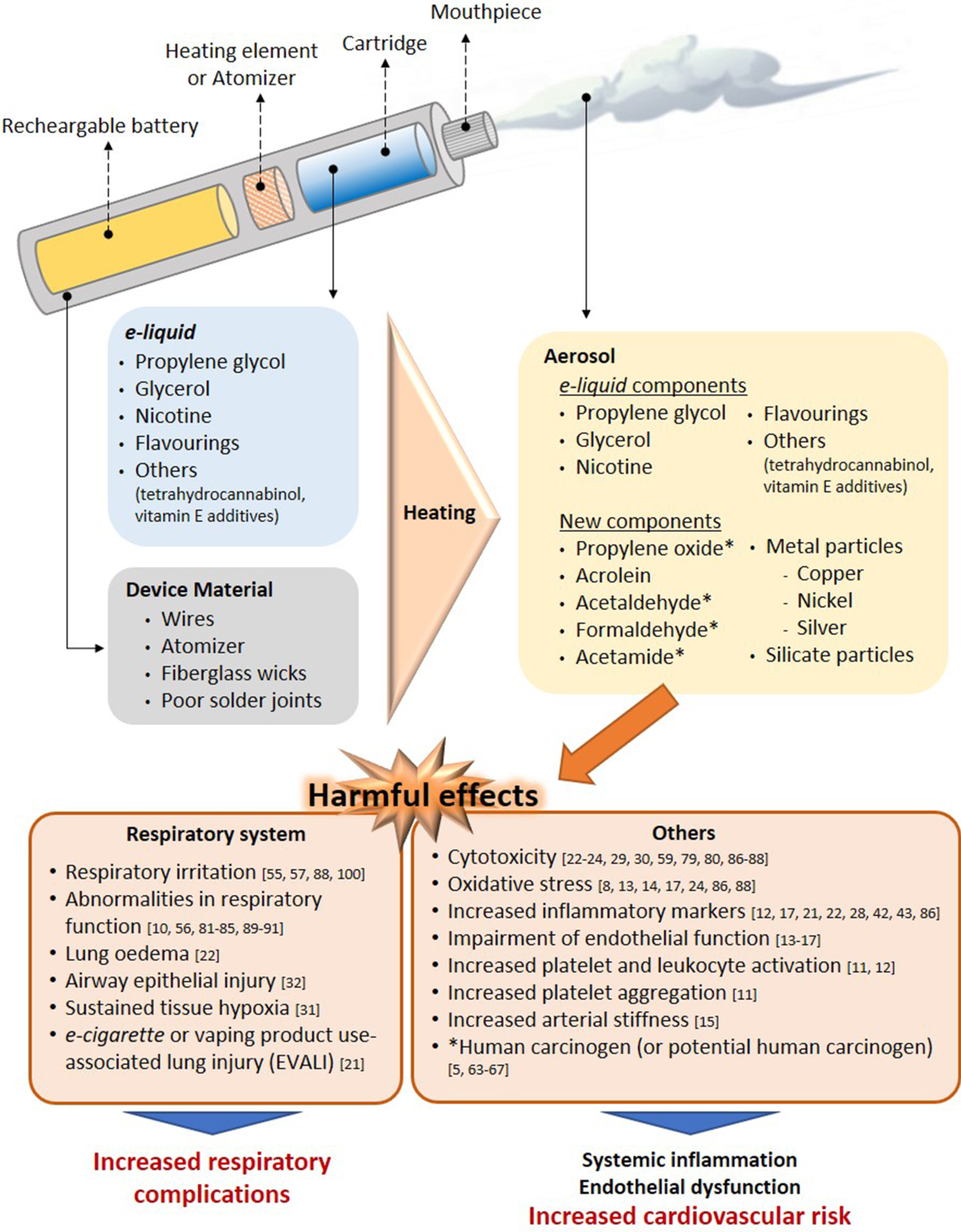Adverse Health Impacts of Electronic Cigarettes
Electronic cigarettes (e-cigarettes) are devices that heat a liquid, often containing nicotine, flavorings, and other chemicals, to create an aerosol that is inhaled. While sometimes perceived as a safer alternative to conventional smoking, significant health concerns are associated with their use.
Respiratory System Effects
The inhalation of e-cigarette aerosol directly impacts lung health:

- Lung Inflammation and Injury: Aerosol components, including flavorings and solvents like propylene glycol and vegetable glycerin, can cause inflammation and irritation of the airways. Severe lung injury, known as EVALI (e-cigarette or vaping product use-associated lung injury), has been linked to certain additives.
- Impaired Lung Function: Regular use can lead to symptoms such as chronic cough, bronchitis, and increased asthma exacerbations. Studies suggest a decline in lung function metrics.
- Decreased Immune Response: E-cigarette use may impair the lung’s ability to respond to infections, increasing susceptibility to respiratory pathogens.
Cardiovascular System Effects
Nicotine and other chemicals in e-cigarette aerosol can negatively affect cardiovascular health:
- Increased Heart Rate and Blood Pressure: Nicotine is a stimulant that acutely raises heart rate and blood pressure, placing stress on the cardiovascular system.
- Endothelial Dysfunction: Components in the aerosol can damage the lining of blood vessels (endothelium), contributing to atherosclerosis and increasing the risk of cardiovascular events.
- Oxidative Stress and Inflammation: E-cigarette use promotes oxidative stress and systemic inflammation, both of which are key factors in the development of heart disease.
Brain Development and Neurological Concerns
Nicotine exposure, particularly during adolescence when the brain is still developing, has detrimental effects:
- Impaired Brain Maturation: Nicotine can harm the developing adolescent brain, impacting areas responsible for attention, learning, mood, and impulse control.
- Addiction: Nicotine is highly addictive. Early exposure can lead to long-term dependence and increase the likelihood of using other tobacco products.
- Mood Disorders: There is a potential link between e-cigarette use and an increased risk of depression and anxiety, especially in younger users.
Other Health Risks
Additional health concerns associated with e-cigarette use include:
- Exposure to Harmful Substances: E-cigarette aerosol is not merely water vapor. It can contain carcinogens (e.g., formaldehyde, acetaldehyde), heavy metals (e.g., nickel, lead, chromium), and ultrafine particles that can be inhaled deep into the lungs.
- Oral Health Problems: Aerosol can contribute to gum inflammation, dry mouth, and an increased risk of dental caries.
- Poisoning Risk: Accidental ingestion of e-liquids, especially by children, can cause acute nicotine poisoning, which can be severe.
- Secondhand Aerosol Exposure: Non-users can be exposed to harmful substances through secondhand aerosol.
In conclusion, e-cigarette use poses significant and varied risks to human health across multiple organ systems. The presence of nicotine and numerous other toxic compounds in the aerosol undermines any perception of e-cigarettes as a harmless product.










